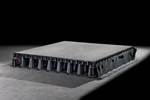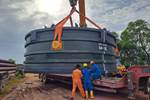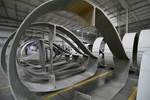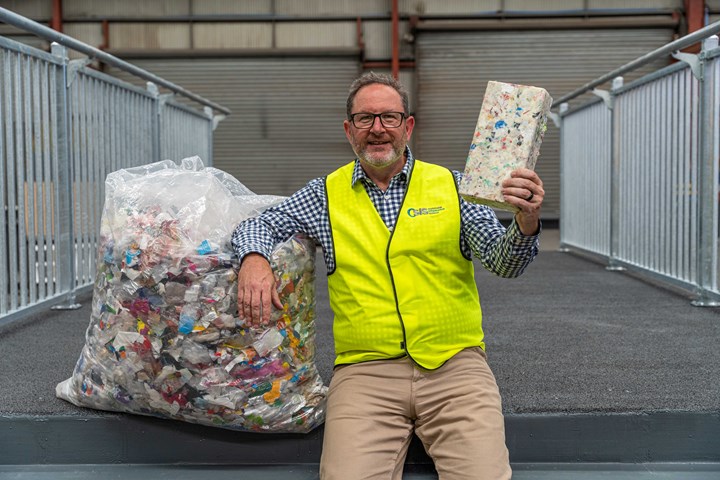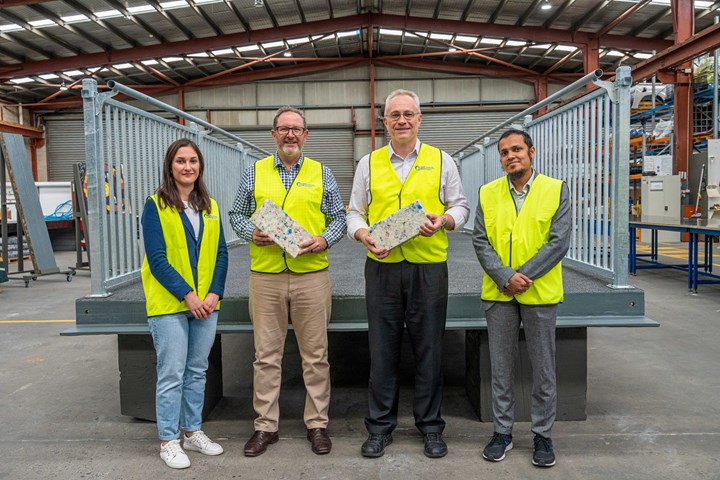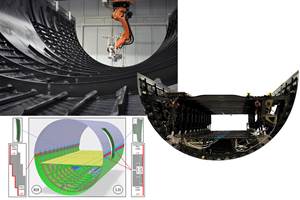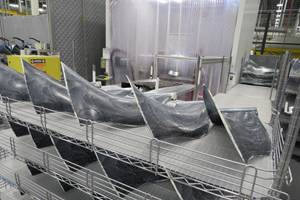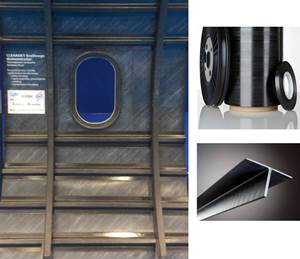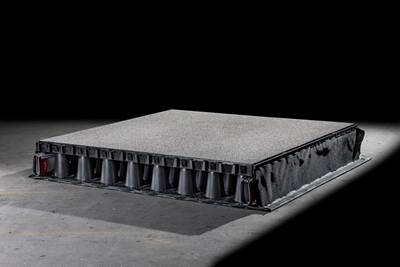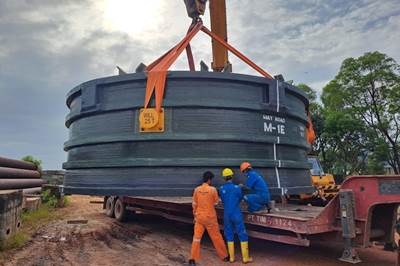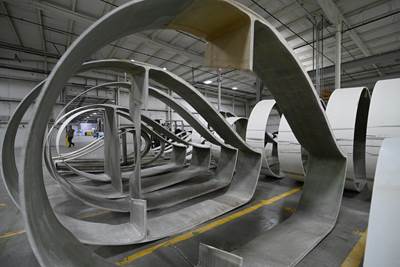Sustainable Infrastructure Systems creates fiber-reinforced post-consumer plastic structural panels
Australian composites manufacturer offers a scalable building solution, already established in a pedestrian bridge application, to tackle unprocessed soft plastics waste.
Sustainable Infrastructure Systems (SIS) managing director Nick Wotton at the company’s South Australian production facility, holding SIS’ soft plastic blocks used to manufacture the company’s soft plastic structural panels. Source (All Images) | SIS
Australian composites manufacturer Sustainable Infrastructure Systems (SIS, Adelaide) announces the development of structural building panels made from glass fiber-reinforced polymer (GFRP) and discarded soft plastics, targeted for infrastructure construction. The technology represents 4 years of R&D in partnership with The University of Adelaide (Australia) on a soft plastics recycling optimization project at SIS’ Wingfield factory in Adelaide’s northwestern suburbs.
The lightweight, high-strength composite panels are claimed to be the first worldwide to be manufactured using post-consumer mixed soft plastics, which are blended with a proprietary material matrix. SIS prefabricated panels can have a structural strength on par with concrete, provide an up to 48% reduction in embodied carbon compared to a concrete panel, and can last well beyond 100 years.
SIS notes that a significant portion of soft plastics used in the panels have been sourced from waste stockpiled following the collapse of Australia’s REDcycle soft plastics project with SIS’ technology, providing a scalable solution to government and industry efforts to find alternative sustainable uses for the material waste.
The first project to feature a prefabricated structural panel incorporating unprocessed soft plastics is a pedestrian bridge installed at Newenham, Mount Barker, in partnership with Mount Barker District Council and South Australian developer Burke Urban. The 7.5 × 3.4-meter bridge contains 70% soft plastics — or the equivalent of 29 standard 240-liter kerbside recycling bins of items — including shopping bags, plastic film and food wrappers.
SIS managing director Nick Wotton, who founded SIS in 2012, says the panels demonstrate the company’s sustainability commitment to its clients and finding industry-leading solutions to major environmental challenges.
“There are potentially limitless applications for our panels in transforming everyday rubbish into structures with benefits for our clients, communities and the environment,” Wotton says. “Recycled plastics have been used in the manufacture of structural building materials for decades, but SIS’ technology is the first to incorporate unprocessed mixed post-consumer soft plastics into high-performance structural panels”
Left to right: SIS PhD student Therese Succar, Nick Wotton, Adelaide professor of structural engineering professor Scott Smith and School of Architecture and Civil Engineering lecturer Dr. Tafsir Tafsirojjaman with the bridge made using soft plastics at SIS’ South Australian facility.
SIS engineers, in collaboration with a University of Adelaide team of academics, PhD students and interns, and led by GFRP specialist and professor of structural engineering Scott Smith, have been working on ways to increase the use of post-consumer plastics and decrease the reliance on virgin materials.
SIS self-funded the development of the panels and aims to ramp up production of the GFRP composite panels in fiscal year 24 and 25, creating an additional 15-18 full-time positions. In addition to using post-consumer soft plastics, the company will also begin trials of manufacturing structural panels using wind turbine blades this year. It is currently negotiating possession of its first full-size turbine blade for processing.
In 2021, SIS invested $2.4 million in a manufacturing facility at Wingfield, South Australia, to manufacture environmentally friendly GFRP structures under license from InfraCore (Rotterdam, Netherlands).
Related Content
Plant tour: Teijin Carbon America Inc., Greenwood, S.C., U.S.
In 2018, Teijin broke ground on a facility that is reportedly the largest capacity carbon fiber line currently in existence. The line has been fully functional for nearly two years and has plenty of room for expansion.
Read MoreManufacturing the MFFD thermoplastic composite fuselage
Demonstrator’s upper, lower shells and assembly prove materials and new processes for lighter, cheaper and more sustainable high-rate future aircraft.
Read MorePlant tour: Albany Engineered Composites, Rochester, N.H., U.S.
Efficient, high-quality, well-controlled composites manufacturing at volume is the mantra for this 3D weaving specialist.
Read MorePEEK vs. PEKK vs. PAEK and continuous compression molding
Suppliers of thermoplastics and carbon fiber chime in regarding PEEK vs. PEKK, and now PAEK, as well as in-situ consolidation — the supply chain for thermoplastic tape composites continues to evolve.
Read MoreRead Next
CirculinQ: Glass fiber, recycled plastic turn paving into climate solutions
Durable, modular paving system from recycled composite filters, collects, infiltrates stormwater to reduce flooding and recharge local aquifers.
Read MoreComposites end markets: Infrastructure and construction (2024)
Composites are increasingly used in applications like building facades, bridges, utility poles, wastewater treatment pipes, repair solutions and more.
Read MoreRepurposing wind blades as functional community art pieces
Ohio-based Canvus Inc. upcycles fiberglass wind blades, car tires and post-consumer plastics to create outdoor furniture that amplifies sustainability messages in community spaces.
Read More

